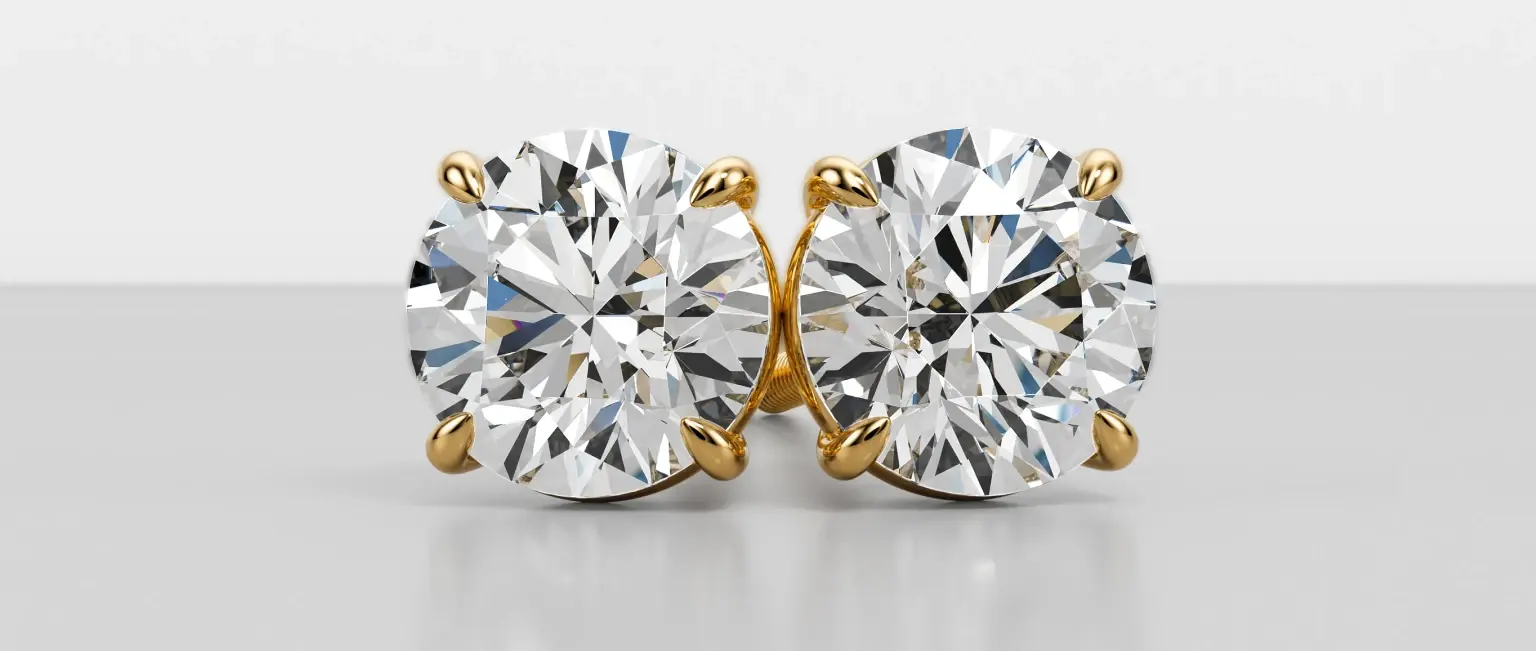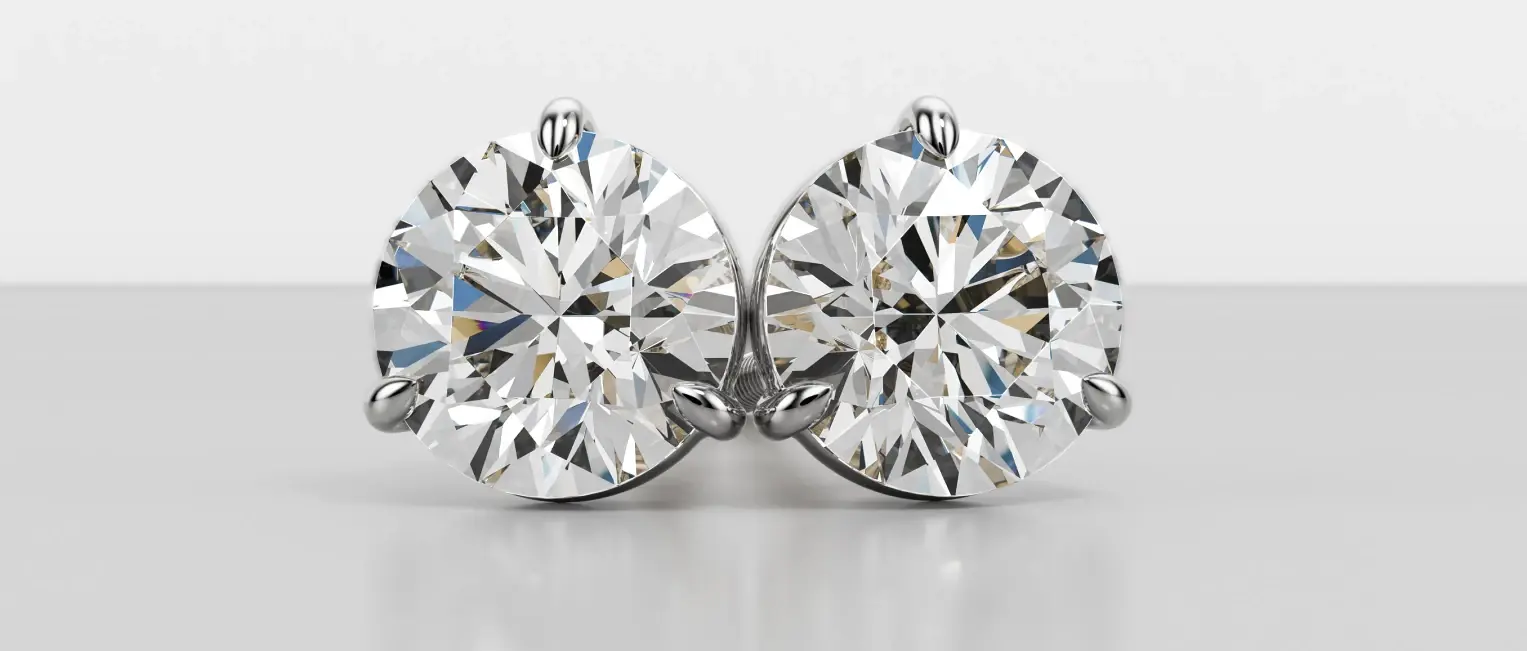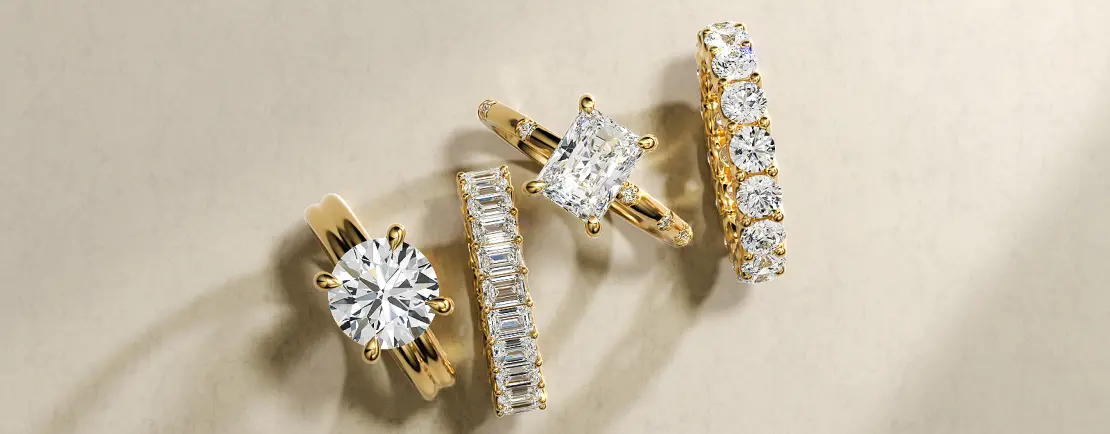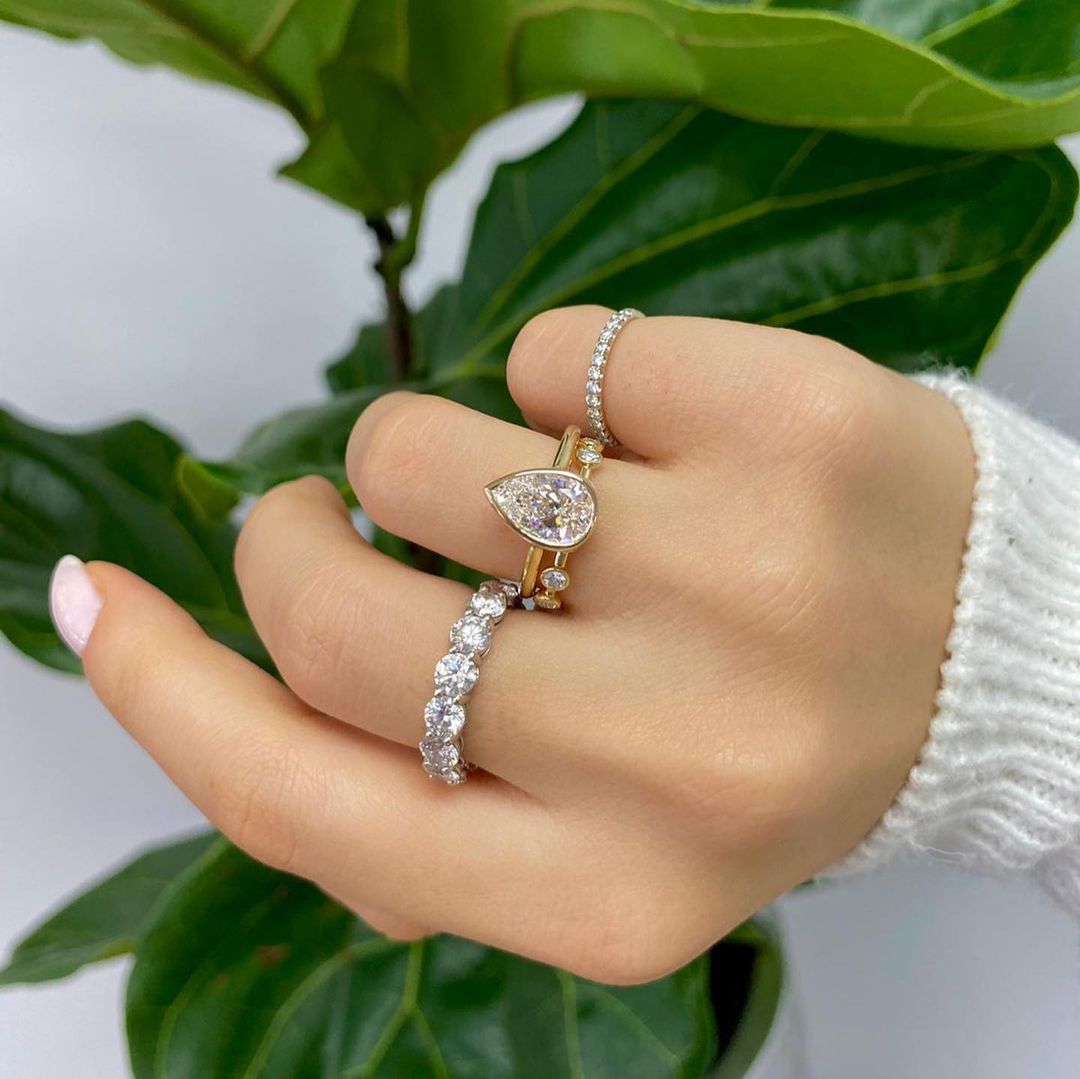While many people consider the pear cut a more modern diamond cut, it’s actually been around since the 1400s! In 1475, Lodewyk van Bercken invented the diamond-polishing wheel in modern-day Belgium. This wheel let him have more control over the facets in diamond cuts, allowing for symmetrical facets to be created with ease. This was the stepping stone for the complex diamond cuts we know today.
Around the same time, van Bercken also cut the world’s first pear diamond. While his diamond wasn’t as intricate as the pear cut diamonds of today, the overall shape was the same. Over the next 500 years, diamond professionals have worked to determine the right size ratio of length to width in order to maximize their sparkle, while the number of facets stayed at 58. This labor of love has given us the pear cut diamond we have today.
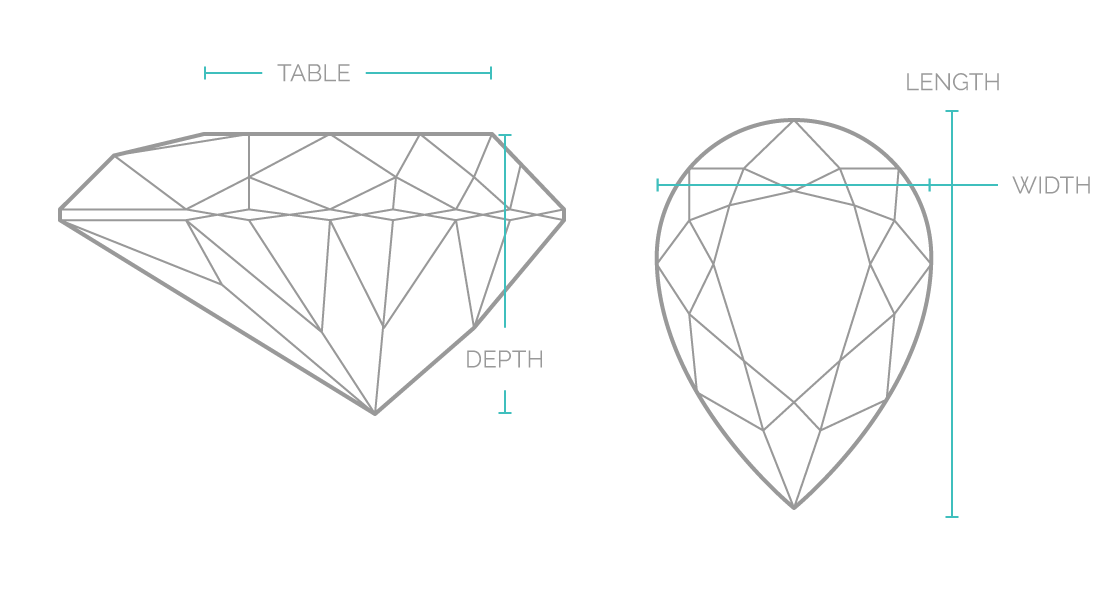
- Ideal Table Percentage: 54% - 56%
- Ideal Depth Percentage: 60% - 65%
- Ideal Length to Width Ratio: 1.40 - 1.53
Since the pear cut diamond offers a unique shape, there are certain settings that work best to showcase the features of this beautiful stone. When choosing a setting for a teardrop diamond, you want to choose one that will help show off the features that make it stand out!
One great way to showcase a pear cut diamond is with a pave prong setting. Prongs are metal pieces that hold your diamond in place and allow it to be showcased with as little visual blocking as possible. Many prong settings are solitaire settings or pave settings, but you can choose one that has accent diamonds on the band if you prefer.
For a pear cut diamond, most prong settings have five or six prongs with a V-tip to protect the pointed side of the stone. The more prongs there are around your diamond, the more secure it will be. However, the security does lower the visibility of the ring, so you need to decide which is more important to you. Prong settings leave more of the stone exposed for visual purposes, but it can leave them more prone to damage as well.
Another option for showcasing the unique beauty of the pear cut diamond is a solitaire settings. If you enjoy simple jewelry, you can’t choose better than a solitaire setting because it is simple, timeless, and elegant. Plus, this style brings all of the attention to the single center diamond, allowing it to really sparkle.
Another beautiful setting option for a pear cut diamond is a halo setting. Halo Settings surround your center stone with smaller diamonds or accent stones, providing a halo effect. This style not only allows your center stone to appear larger, but it also provides the delicate shape of your pear diamond, added protection from dings and other damage.
Halo settings tend to be pricier than prong settings due to the accent stones in the band. The style can also be harder to maintain and clean, though these cons may be worth it for the beautiful sparkle that halo settings have from every angle!
A bezel setting is perfect for an pear cut diamond if you want to make sure the diamond is as protected as possible due to everyday wear. Bezel settings have a thin metal frame that circles the diamond completely. This design keeps the edges of your diamond safe from dings and hits while also keeping the stone securely in place. Many people enjoy this option due to the minimalist design, along with the fact that it won't snag on clothing as pronged settings may.
Bezel settings cover up a larger portion of your diamond, though it won't hide the shape of the stone. Some people don't like that a bezel setting makes the stone appear smaller than it is. However, you can choose a half bezel setting if you'd like, which leaves the sides exposed!
Not only is a pear cut diamond unique and modern looking, but it provides you with other benefits as well!
- Pear cut diamonds provide a slimming effect on your finger
- Pear diamonds cost less per carat than other cut styles of the same quality
- Pear diamonds stand out in the crowd due to their unique features
- Pear cut diamonds give off a vintage style that is popular right now!
If you’re looking for a unique yet elegant diamond shape, you can’t go wrong with the pear cut diamond. With the impressive sparkle and asymmetrical shape, you’re sure to turn heads with any ring that showcases a pear cut stone!


















